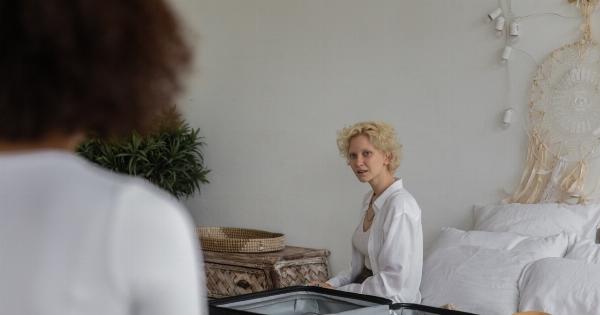Have you ever spent time staring at your phone or computer before bed, only to find yourself struggling to fall asleep? Chances are, the blue light emitted by these electronic devices is to blame.
In this article, we’ll explore how blue light affects sleep and what you can do to mitigate its impact on your rest.
What is Blue Light?
Light is made up of different colors, each with its own wavelength and frequency. Blue light refers to the high-energy, short-wavelength light that is emitted by electronic devices, as well as by the sun and many indoor light sources.
While blue light is a natural part of the daylight spectrum and can be beneficial during the day, exposure to blue light at night can disrupt sleep patterns.
How Blue Light Affects Sleep
Your body’s internal clock, or circadian rhythm, plays a crucial role in regulating sleep and wake cycles. Exposure to blue light can interfere with this process by suppressing the release of the hormone melatonin, which helps to promote sleep.
This disruption can make it harder to fall asleep, stay asleep, and wake up feeling rested. Over time, chronic exposure to blue light at night can lead to sleep disorders and other health problems.
The Risk of Blue Light Exposure
According to the National Sleep Foundation, exposure to blue light at night can have a range of negative effects on health and overall quality of life. Some of these potential risks include:.
- Increased risk of depression
- Decreased daytime alertness and productivity
- Increased risk of obesity and diabetes
- Impaired immune function
- Poor quality of sleep
How to Reduce Blue Light Exposure
If you’re concerned about the impact of blue light on your sleep and overall health, there are several strategies you can use to reduce your exposure. Some effective options include:.
1. Adjusting Screen Settings
Many electronic devices now come with blue light filters that can be turned on to reduce the amount of blue light emitted. You can also manually adjust the brightness and color temperature settings on your device to minimize blue light exposure.
Some devices even allow you to set a “night mode” that automatically adjusts the screen settings at certain times of day to reduce blue light.
2. Investing in Blue Light Blocking Glasses
Blue light blocking glasses are designed to block out the harmful blue light emitted by electronic devices and artificial lighting. These glasses can help to reduce the risk of sleep disorders and improve overall well-being.
3. Reducing Screen Time
The less time you spend looking at electronic screens each day, the less exposure you’ll have to blue light.
Try to limit your screen time in the hour or two leading up to bedtime, and establish a “digital curfew” that will help you disconnect and unwind before sleep.
4. Using Nighttime Light Sources Wisely
While exposure to blue light at night is generally not recommended, some low-wavelength light sources can be beneficial. Red or orange-tinted bulbs, for example, can provide a soft, warm glow without interfering with your circadian rhythm.
Consider using these types of bulbs in your bedroom and other areas of your home in the evening.
5. Getting Plenty of Natural Daylight
Your body’s internal clock is heavily influenced by exposure to natural daylight. Spending time outside during the day, particularly in the morning, can help to regulate your circadian rhythm and improve sleep quality.
Try to get at least 30 minutes of natural sunlight each day to optimize your body’s internal clock.
The Bottom Line
Exposure to blue light at night can have numerous negative effects on sleep and overall health. However, there are several strategies you can use to reduce your exposure and mitigate the risks associated with blue light.
By adjusting your screen settings, using blue light blocking glasses, limiting screen time, choosing nighttime light sources wisely, and getting plenty of natural daylight, you can improve your sleep, boost your energy, and optimize your overall well-being.





























